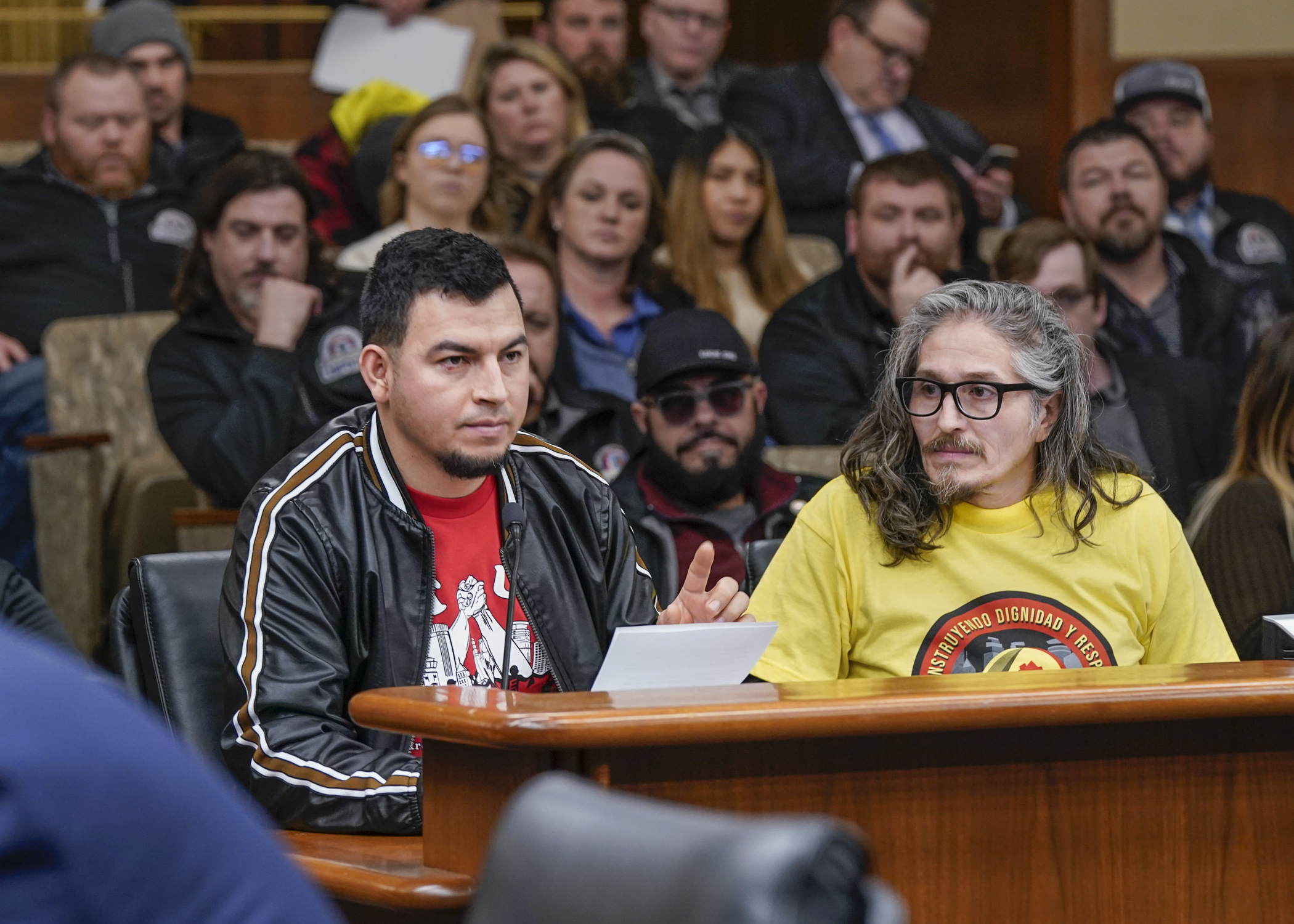House panel advances proposal to tackle wage theft in construction industry

During the 2019 special session, the Legislature passed a strict wage theft law, making the practice a felony.
However, in the view of Rep. Sandra Feist (DFL-New Brighton), that law has proven insufficient for combatting wage theft in the construction industry.
“The 2019 law that we passed has been a positive step forward, but this issue remains prevalent. Wage theft impacts approximately 23% of construction workers, and this is a business model that’s been set up for the purposes of profiting from the exploitation of a largely immigrant construction workforce.”
She sponsors HF1859, which would expand wage theft protections by making certain employers civilly liable when workers are cheated out of their wages.
The House Labor and Industry Finance and Policy Committee approved the measure 9-3 Thursday, sending it to the House Judiciary Finance and Civil Law Committee.
Feist claims many construction workers have no recourse to recover lost wages because the industry operates in a way to oftentimes shroud who a worker’s true employer is. The bill addresses this by making general contractors civilly liable for “any unpaid wages, fringe benefits, and resulting liquidated damages” owed to a worker by a subcontractor hired to complete work on the general contractor’s behalf.
Attempting to evade liability by claiming a worker is an independent contractor rather than an employee of a subcontractor would also be prohibited, unless the worker meets the statutory definition as such.
Feist believes her bill would level the playing field for ethical general contractors who are often underbid by businesses that work with subcontractors who exploit their workers. Not only would the bill shift responsibility to general contractors for remedying wage theft complaints, but it would provide general contractors with tools to help prevent the theft from occurring in the first place.
Namely, the bill would require subcontractors to provide payroll records to a general contractor when requested. These records would have to include sufficient information demonstrating that the subcontractor is paying wages and fringe benefits to all workers providing labor on the project. Failure to provide these records in a timely manner would constitute a legitimate basis for a general contractor to withhold payment to a subcontractor.
The bill contains numerous enforcement provisions: existing labor laws would be expanded to empower the Department of Labor and Industry to ensure compliance with the wage theft protections, as well as affirm the rights of employees to sue employers they allege to have violated these protections. The Office of the Attorney General would also be granted the ability to bring a civil action to collect unpaid wages on behalf of employees.
Wage theft protections outlined in the bill would apply to contracts or agreements entered into, renewed, modified, or amended on or after Aug. 1, 2023.
Over a dozen testifiers spoke before the committee in a packed hearing room. Supporters and opponents of the bill both referenced the 2019 wage theft law to bolster their arguments.
“We haven’t seen much change in our industry since then,” said Adam Duininck, director of government affairs with the North Central States Regional Council of Carpenters. “Approximately half of the multi-family work that’s gone on [in Minnesota] is still being performed by subcontractors paying cash under the table.”
This bill would incentivize employers to finally comply with the law, he said.
In contrast, Tim Worke, CEO of Associated General Contractors of Minnesota, believes wage theft can best be curbed in the industry by providing the $3 million the department is requesting to better enforce laws already on the books.
“We do not need more legislation, what we need is a greater commitment and greater funding to make sure those existing laws are effective,” he said.
Feist briefly touched on an amendment that, while not drafted in time to be adopted by the committee, she intends to incorporate in the next engrossment of the bill to address the concerns of industry stakeholders.
It would exempt general contractors if they are signatories to a collective bargaining agreement with a building and construction trades labor union and that agreement, 1) contains a grievance procedure that can be used by workers to recover unpaid wages, and 2) provides for the collection of unpaid contributions to fringe benefit trust funds.
Related Articles
Search Session Daily
Advanced Search OptionsPriority Dailies
Speaker Emerita Melissa Hortman, husband killed in attack
By HPIS Staff House Speaker Emerita Melissa Hortman (DFL-Brooklyn Park) and her husband, Mark, were fatally shot in their home early Saturday morning.
Gov. Tim Walz announced the news dur...
House Speaker Emerita Melissa Hortman (DFL-Brooklyn Park) and her husband, Mark, were fatally shot in their home early Saturday morning.
Gov. Tim Walz announced the news dur...
Lawmakers deliver budget bills to governor's desk in one-day special session
By Mike Cook About that talk of needing all 21 hours left in a legislative day to complete a special session?
House members were more than up to the challenge Monday. Beginning at 10 a.m...
About that talk of needing all 21 hours left in a legislative day to complete a special session?
House members were more than up to the challenge Monday. Beginning at 10 a.m...